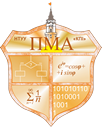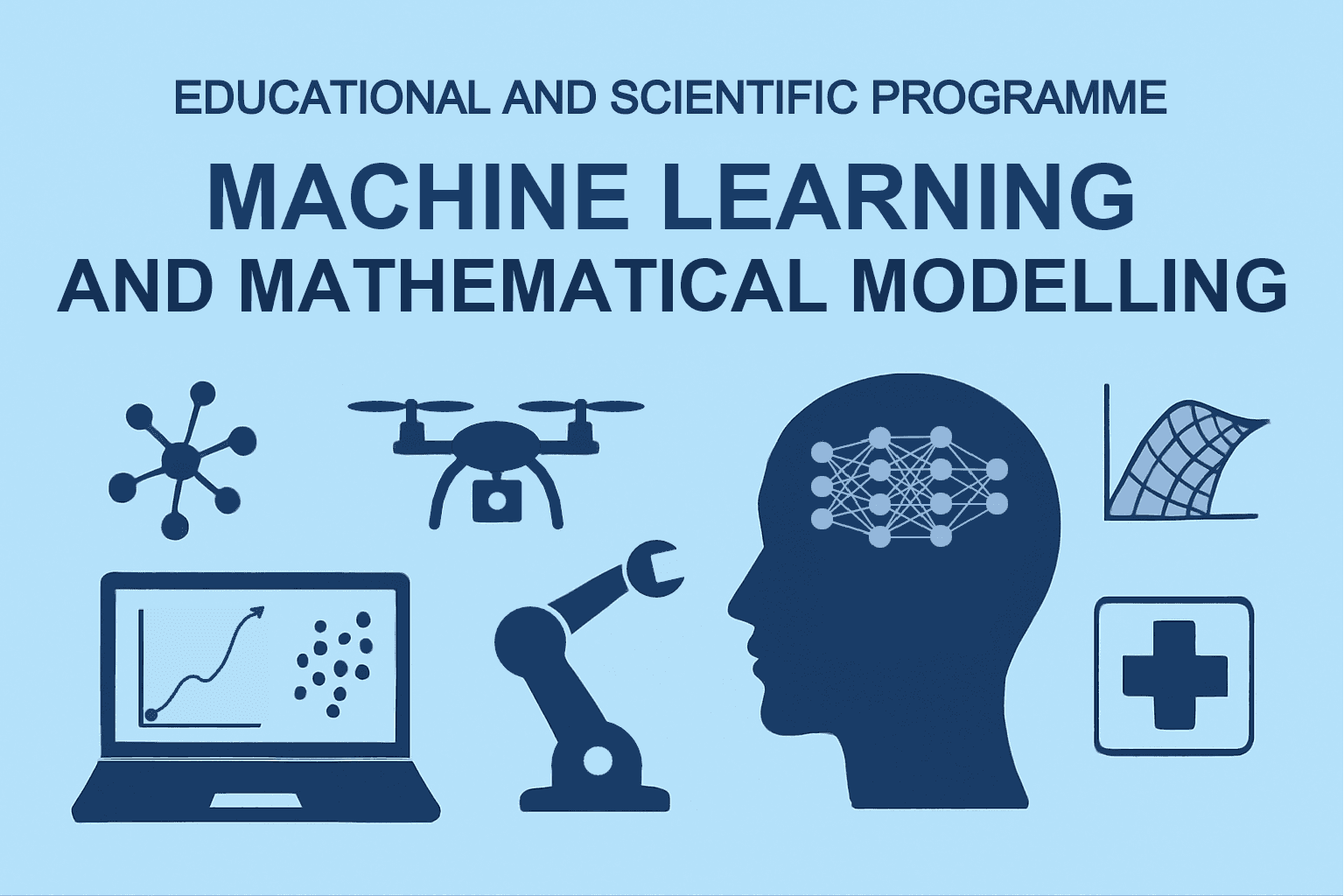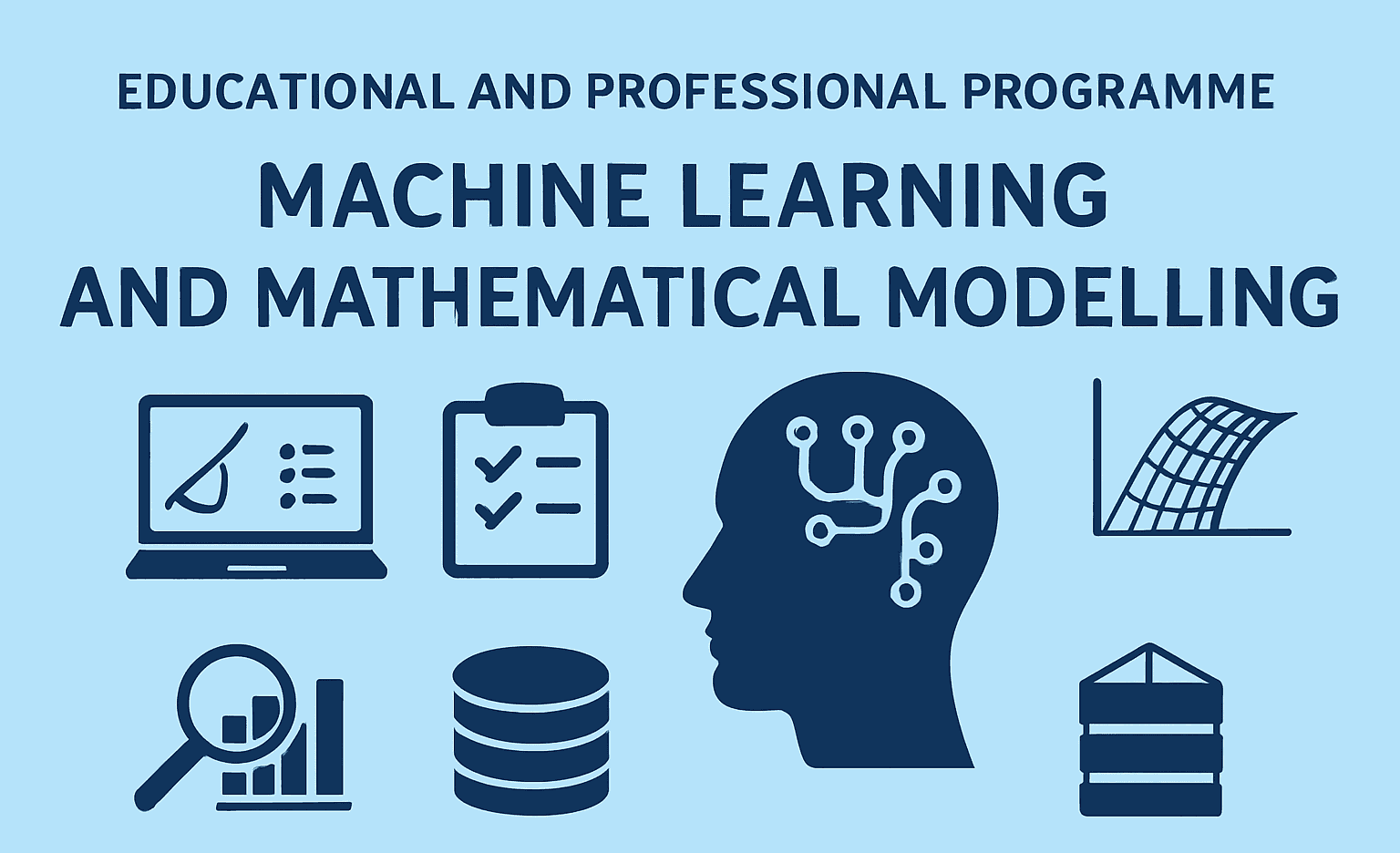- Admission
- New Master's Programmes
New Master's Programmes
The Applied Mathematics Department has introduced substantially updated Master's programmes:
- Educational and Scientific Programme "Machine Learning and Mathematical Modelling"
- Educational and Professional Programme "Machine Learning and Mathematical Modelling"
In previous years, the only difference between the research-oriented and professionally oriented Master's programmes was an additional semester of study. Today, we are decisively changing the concept of these two educational tracks.
Although both programmes share the same title, there are significant differences between them:
- the research-oriented programme is designed for students aiming to pursue careers in applied scientific research, academic publishing, participation in research projects, and more. In addition to gaining practical skills in machine learning and AI, students in this programme will engage in research work related to the development of modern computational methods for multiphysics problems and the processing of visual and geometric data. They will contribute to the creation of the department’s flagship software tools for analysis, visualization, and animation of physical processes and objects
- the professionally oriented programme focuses on preparing specialists for career growth in the fields of machine learning and mathematical modelling. Students will be introduced to and will deepen their expertise in the application of modern machine learning tools, big data technologies, and project management, guided by leading industry practitioners.
The educational and scientific programme is harmonized with the curricula of partner universities under the international Erasmus Mundus Joint Masters project “Mathematical Modelling, Simulation and Data Science for Industrial and Societal Challenges” (MATHS-DISC). Notably, instruction in the first and third semesters is delivered in English.
A brief comparison of the two programmes is provided in the table below. More detailed information is available in the respective curricula (research-oriented and professionally oriented).
| Common Courses | Educational and Scientific | Educational and Professional | |
| Semester 1 | |||
| Data Mining | Modelling of Complex Systems | Modelling of Complex Systems | |
| Architecture and Technology of Big Data Systems | Numerical Methods of Mathematical Physics | Project Management | |
| Practical Course in Foreign Language | Geometric Modelling | Fundamentals of Scientific Research | |
| Fundamentals of Scientific Research | Intellectual Property and Patent Science | ||
| Startup Projects Development | |||
| Semester 2 | |||
| Машинне навчання | Electives 2 (5 ECTS credits each) 2 (4 ECTS credits each) | Electives 3 (5 ECTS credits each) 2 (4 ECTS credits each) | |
| Sustainable Innovative Development | Intellectual Property and Patent Science | Fundamentals of Scientific Research | |
| Practical Course in Foreign Language | Innovation Management | ||
| Semester 3 | |||
| Applied Modelling | Internship | ||
| Mathematical Modelling in Biomedical and Pharmaceutical Research | Completion of the Master's Dissertation | ||
| Electives 1 (5 ECTS credits) 2 (4 ECTS credits each) | |||
| Practical Course in Foreign Language | |||
| Research on the Topic of the Master's Dissertation | |||
| Pedagogical Mastery | |||
| Semester 4 | |||
| Research Internship | |||
| Completion of the Master's Dissertation | |||
Elective Courses Include:
Semester 2:
- 5 ECTS credits: Fuzzy Set Models in Business and Finance, Mathematical Models for Decision Support, Game Theory, Computer Vision
- 4 ECTS credits: Functional Programming, Data Science Systems, Methods of Reliability Theory and Risk, Blockchain Technology
Semester 3:
- 5 ECTS credits: Generative Artificial Intelligence, Evolutionary Computing
- 4 ECTS credits: Econometric Analysis, Natural Language Processing, Modern Reinforcement Learning Methods, Deep Learning Systems, Project Management
More detailed information about these courses is available in our F-Catalogue.


